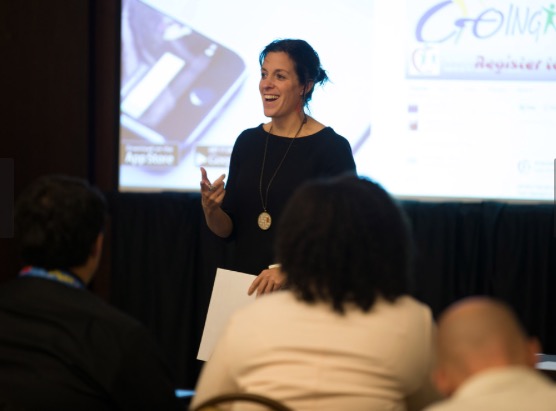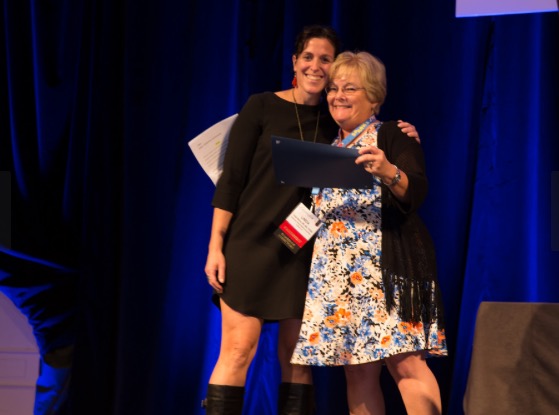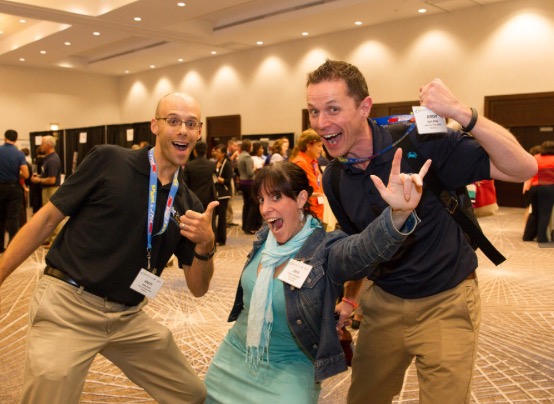I don’t remember when my first ASHA conference was, but it was at least ten years ago and I think I’ve attended every year since. The American School Health Association’s mission is to transform all schools into places where every student learns and thrives. I’d love for the organization to grow, for all school administrators to put the health and well-being of their school community first in order to see their students’ academics improve. However, that’s not the world we live in.
data-animation-override>
“The American School Health Association envisions healthy students who learn and achieve in safe and healthy environments nurtured by caring adults functioning within coordinated school and community support systems. ”
ASHA’s conference is one I never miss. It’s the conference I always apply to present at. The conference is intimate, accessible, fun and pushes me to think differently, learn and grow professionally. It’s a reunion of sorts… seeing colleagues I adore from 50 states and sharing what we are doing to not only put systems in place for schools, but to better the lives of American youth.
This conference, in Orlando, in particular was one of the best. Our keynote, Dr Kenneth Ginsburg from the Children’s Hospital of Philadelphia and University of Pennsylvania School of Medicine gave an outstanding address about Resilience in Action: Preparing Children and Adolescents to Thrive. He addressed the 7 C’s of Resilience: confidence, competence, connection, character, contribution, coping and control. He mentioned that in the worst of times, women do better (his word was: win) because they connect with others better. Men, typically don’t. “Who is going to survive the hardest of times?” he asked. “Those who can reach out to another human being.”
data-animation-override>
“The man who can express feelings and reach out to others is the man who rocks the world. ”
Dr. Ginsberg mentioned that children with childhood trauma are more likely to do drugs and 12 times more likely to attempt suicide. They are more likely to be obese, be jailed, have diabetes, heart disease, stroke and cancer. And, among adolescents with stress and trauma, anger and irritability is the biggest sign of depression among young boys.
data-animation-override>
“The only thing that heals a human being is love.”
So what helps? An adult that stands beside you. Believing you have at least one caring, healthy adult on your side. Dr. Ginsberg talked about how kids go off in school and have behavioral issues. They are reactive, especially when you get closer to them. It’s because you are getting closer to the truth. As adults, the only thing you can do to change a person’s life is to make them feel like they belong, like they are loved to decrease the isolation they feel. As educators, parents and advocates, we have to talk to kids, listen, honor their intelligence. Lecturing and yelling don’t work. Give them the gift of a better way to manage feelings that isn’t destructive. And model it yourself.
data-animation-override>
“We want youth to be prepared to run a marathon, not a sprint. In a sprint, if you trip and fall- it’s all over. In a marathon, if you trip and fall, you get up and keep going. ”
In order to change what we as adults can do for youth, we need to define success for children. We have to ask what we want them to be at 35 years old. A contributor to the world? Compassionate? Kind? Empathetic? Have tenacity?

I presented four different times at ASHA. I co-facilitated a pre-conference with Kymm Ballard of SPARK Programs called “A Magical School Health Story to Remember” that engages the participants in a fictional school story that shares the evidence-base practices, policies and programs for transforming into a healthy school. I facilitated the first-timers meeting, I presented with Ilana Sherman from HealthWorld on How Technology Has Changed the Field of Health Education, and I presented on how to develop a Health Education Scope and Sequence for your school district. I attended many strong sessions that told about local success stories and inspiring innovative programs. I learned of new tools like the National Teacher Preparation Standards for Sexuality Education developed in partnership by FoSE, Advocates for Youth, Answer and SIECUS.

I was honored to receive a Presidential Citation from Linda Morse, outgoing President on my contributions to ASHA over the past couple of years. I wasn’t expecting it and felt incredibly appreciated by this gesture from Linda!
I never stepped in Disney World I was so busy networking, presenting, going for runs and catching up with colleagues! I look forward to seeing everyone next year, October 6-8 in Baltimore, Maryland!

Andrew Milne, Andy Horne and I acting it up at the Indiana University Reception

This is a great conference, and very different from the typical education conference that I attend. The quality of presentations, and the experience of those presenting is extremely high. The conference also allows me to see my subject area (health) from a different angle. To mix with the likes of Dr. Ginsburg, the CDC employers, the budget holders, curriculum designers, advocates and Department of Education coordinators allows me to gain a fuller understanding of my subject and how I can best serve my students. I too, hope to be at the next ASHA conference in Baltimore.